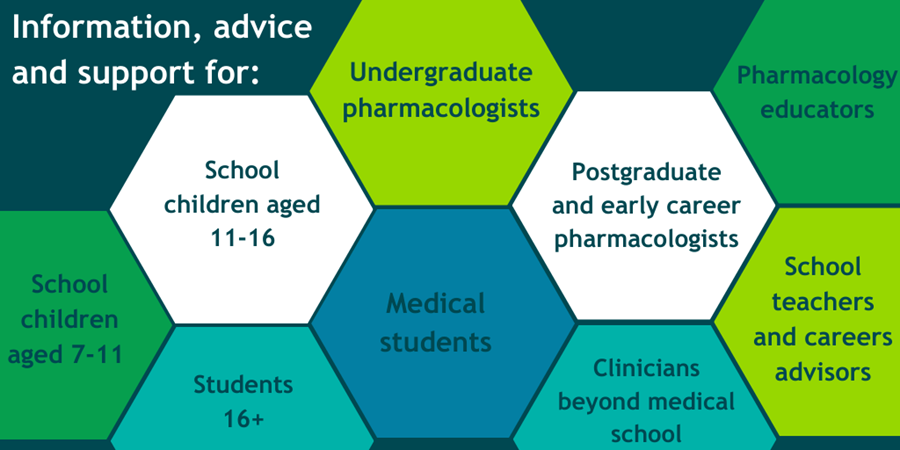Published: 20 Oct 2020
Category:

We know that it is likely that, as a pharmacologist, you have been asked about careers and opportunities in pharmacology, perhaps during networking at conferences, as part of discussions with your team, or even during conversations with family and friends. But what do you say?
Careers advice, guidance and support is important for each of us throughout our education and working life, and as a Society we want to help you inspire the next generation of pharmacologists. That is why one of our objectives is to help build networks and support the next generation of learners to discover the wonders of pharmacology.
Finding the answers
Whether you are exploring scientific research, showcasing roles in industry, or demonstrating the impact of clinical pharmacology, there are so many ways to support and guide future pharmacologists. But sometimes, it can be difficult to know how best to support these conversations.
The Society team receives a whole range of questions relating to careers in pharmacology, such as:
What kinds of jobs are open to pharmacologists?
What funding is available at different career stages?
Where can students find work experience or internship opportunities?
We even receive questions around what pharmacology is and what pharmacologists do on a day-to-day basis.
We are keen to support future pharmacologists, and our members, to access useful and current information to help them make informed choices at every stage of their career, wherever that may take them!
Depending on who you are talking to, your responses to these questions might be very different; speaking to a child interested in how medicines work is very different to giving guidance to a student considering studying pharmacology at university, or sharing advice with early career pharmacologists looking to grow their networks.
To support you with these important conversations, we have put together
new web pages and resources to help answer questions related to pharmacology, with tailored information relevant to different groups and career stages. These pages showcase the global importance and relevance of pharmacology and provide information on the diverse career options available through first-hand experiences, resources and advice.

With the support of the Society’s Committees and Groups, we have collated information tailored to support various stages of academic and career progression, starting with information for
younger children (ages 7+), through to
postgraduate and early career pharmacologists. There are also pages specifically for
pharmacology educators and lecturers who want to help their students understand more about the career options open to them following a pharmacology degree. You will find advice on building networks, finding funding and responding to peer review, as well as resources to support decision making at each stage.
We also recognise that pharmacology training provides transferable skills that make its graduates attractive to potential employers in a
huge range of roles and organisations, from science communication, to policy work, finance and beyond. We have reached out to pharmacologists to gather their insight and share their varied career paths, so those considering ‘what next?’ can see how others have advanced their careers in many different fields.
We hope that there is something for everyone, so please take a moment to
look at the new resources and share them with your colleagues, friends and wider networks. We are keen to ensure that future generations of pharmacologists feel supported in taking the next steps in their pharmacology careers, and we would love you to be part of the conversation.
Visit the website now
Do you have something to share?
If you would like to share your experiences of a career in pharmacology, or to suggest a resource related to pharmacology careers that could be included, we would love to hear from you!
Please get in touch with the team.
Comments
If you are a British Pharmacological Society member, please
sign in to post comments.